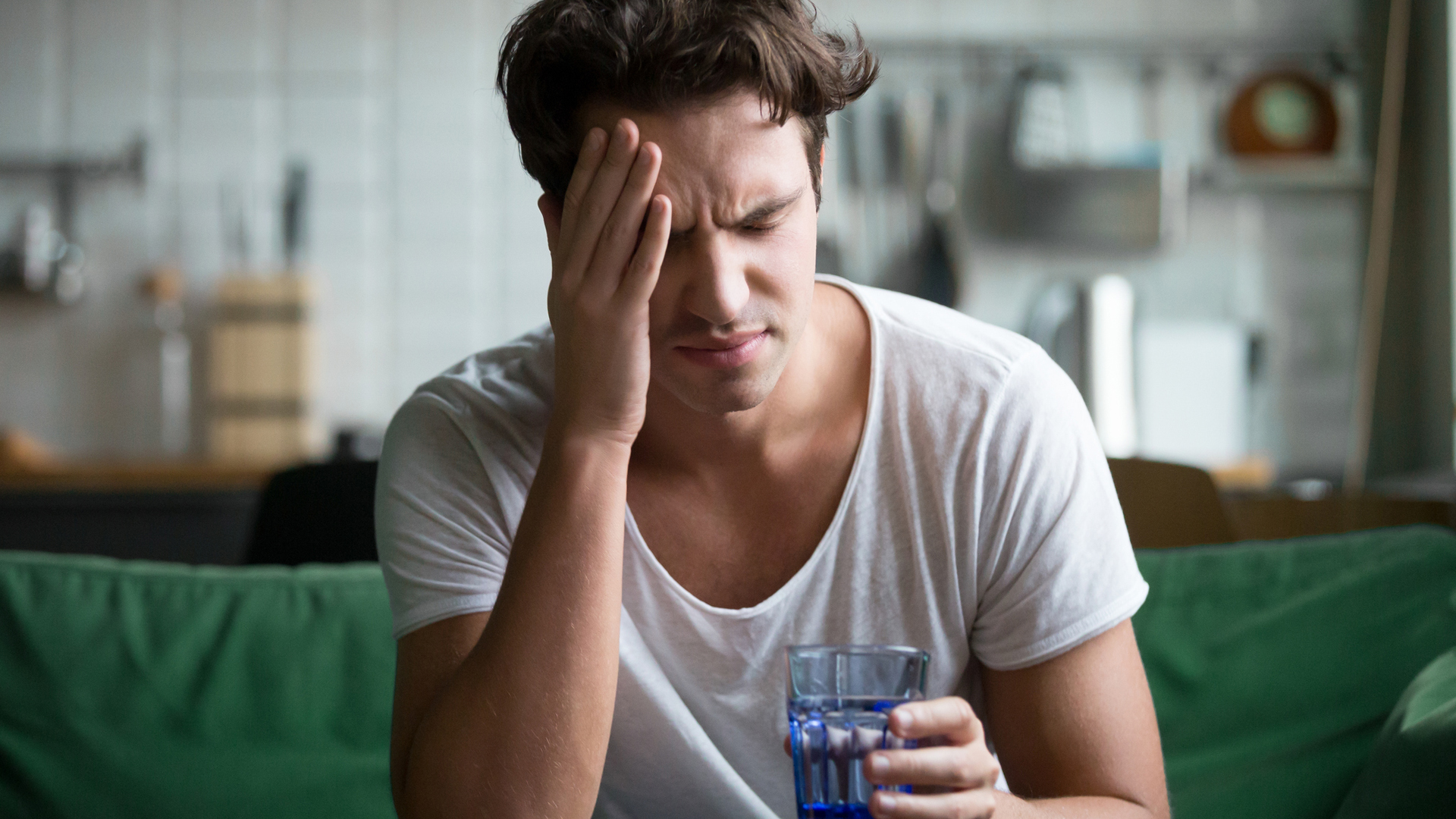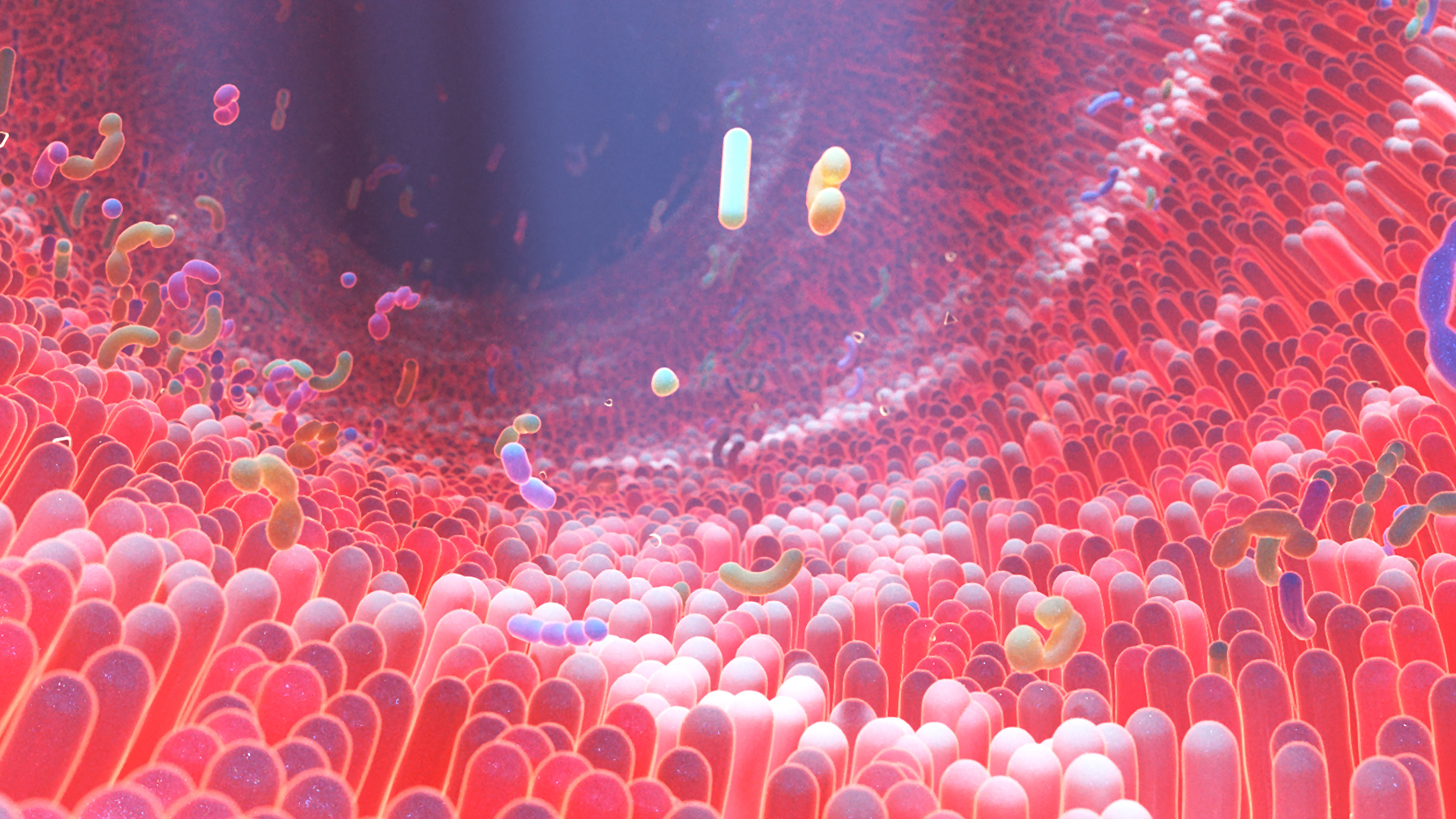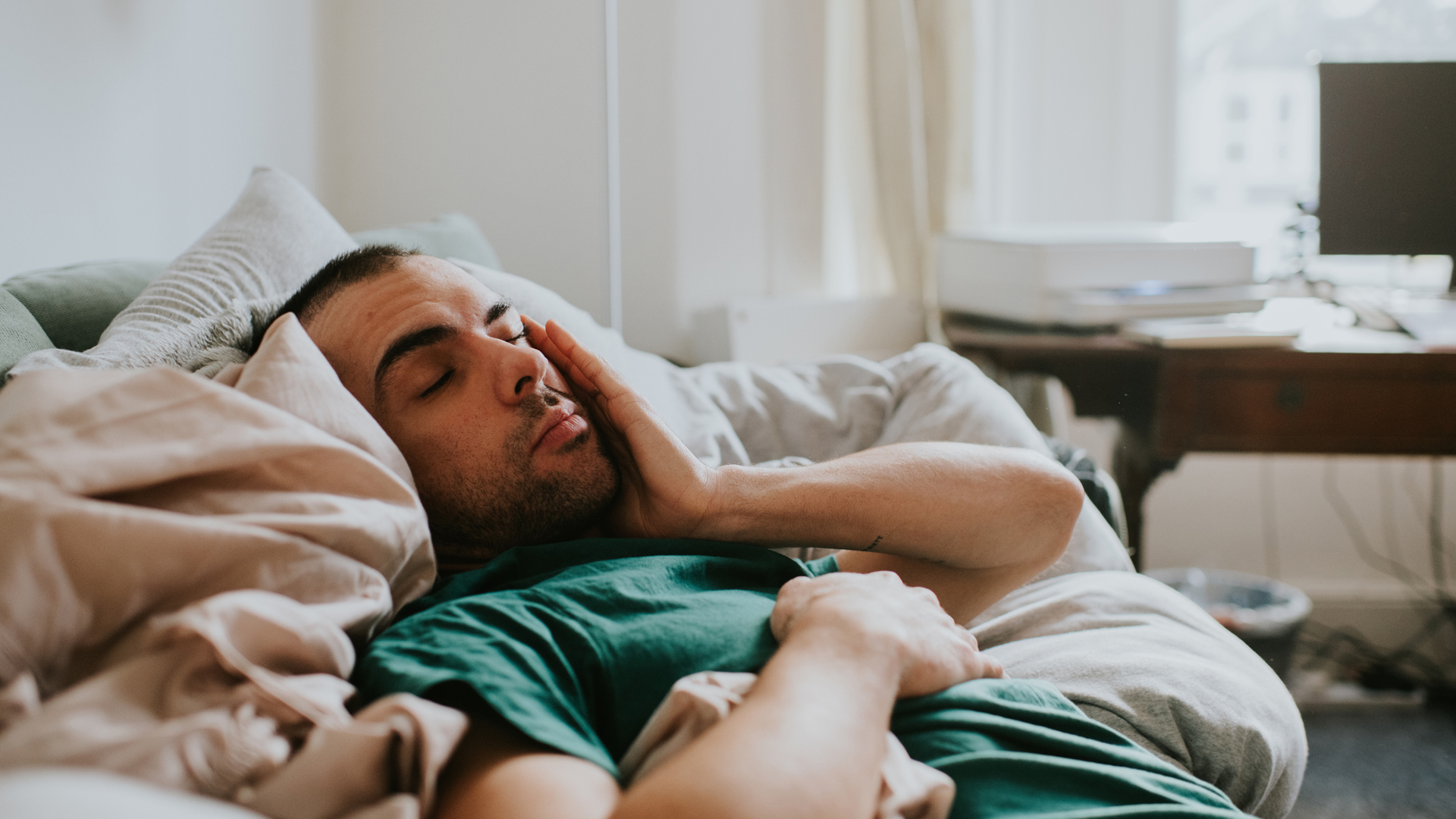What is 'hangxiety' and why do some people experience it?
The term "hangxiety" describes feelings of shame, worry or guilt after drinking. But what causes it?

Hangxiety. Booze blues. Beer fear. These terms describe feelings of shame, guilt, or worry that can emerge after a night of drinking. While hangover anxiety — or "hangxiety" — may not be a diagnosed medical condition, it can significantly affect a person's quality of life. But what causes it?
Many aspects of hangovers, including dehydration and lack of sleep, have the ability to trigger or intensify feelings of anxiousness. Large volumes of alcohol also trigger potentially harmful activity in the body's immune and stress response systems, Craig Gunn, a lecturer and researcher in the School of Psychological Science at the University of Bristol in England, told Live Science.
"There is an increase in proinflammatory cytokines [a class of inflammatory molecules] and cortisol [stress hormone] levels," he said. "In addition, the physiological effects of a hangover, such as an increased heart rate, can mimic those seen during anxiety. Together, these could lead to increased feelings of anxiety for certain individuals."
However, Gunn said that hangxiety is estimated to only affect around 12% of individuals who drink alcohol, and why some people have different symptoms to others is not well understood.
Hangxiety and the brain
According to a 2019 article published in the journal Alcohol and Alcoholism, the mild euphoria we experience after drinking alcohol is caused by temporary changes to our chemical messengers in the brain, called neurotransmitters. These neurotransmitters play a major role in regulating our mood, and after they initially generate euphoria, sudden changes to their levels may be a major trigger for later symptoms of hangxiety.
Dr. David Nutt, head of the neuropsychopharmacology unit at Imperial College London in England, told Live Science how hangovers can impact our mood.
"At first, alcohol elevates the GABA system — the brain's natural calming neurotransmitter — and this leads to its relaxing and sociability effects," Nutt said. "Then, at higher doses, it blocks another neurotransmitter called glutamate. Glutamate has opposite effects to GABA; it excites the brain and lays down memories. Blocking it leads to sedation and amnesia."
According to Nutt, the brain tries to compensate for these effects by decreasing GABA production and increasing glutamate production. Once the alcohol has left the body, the brain is left overactive and this can cause feelings of anxiousness, as well as other symptoms of a hangover.
Research also suggests that hangovers decrease cognitive performance. A 2018 study published in the journal Frontiers in Human Neuroscience found that hangovers increased the brain's "cognitive load," meaning the effort required by a person to perform a task. In turn, this affected participants' ability to complete tasks, because the brain was overwhelmed. A 2020 article, published in the Journal of Clinical Medicine, also found that hangovers significantly lowered alertness and led to higher mental fatigue and anxiety when participants were asked to complete a multitasking framework.
What's the link between hangxiety and dehydration?
Feeling extremely thirsty is a common hangover symptom, according to the Cleveland Clinic. Alcohol is a diuretic substance, which means it makes your body lose fluids more rapidly than normal. After a night of heavy drinking, this fluid loss can leave you feeling groggy and tired when you wake up.
This dehydration may also add to feelings of hangxiety. A 2014 study, published in the journal PLOS One, found that people who didn't drink enough water (1 liters/35 ounces per day, compared with 2.5 liters/88 ounces per day) before consuming alcohol were more prone to experiencing negative emotions the following day.
Even mild dehydration may trigger feelings of tension and worry. A 2011 study, published in the British Journal of Nutrition, found that even mild dehydration in men can lead to impaired working memory and increased anxiety levels. Similarly, women suffered from lower mood when they became dehydrated by as little as 1.36%, according to a 2012 study, published in the Journal of Nutrition.

Is there a link between hangxiety and sleep?
Trying to avoid hangxiety by "sleeping off" hangover symptoms may not be an effective strategy, some studies suggest.
A 2015 review published in the journal Alcohol suggested that alcohol consumption can disrupt one's sleep cycle and lowers the quality of sleep. Restful shut-eye is essential to good mental health, and a 2016 review published in journal Sleep Medicine suggested that sleep deprivation can increase people's baseline anxiety levels.
However, Gunn stressed that "the link between sleep quality and hangover anxiety has not yet been established."
Hangxiety and gut health
Hangxiety may also be linked to poor gut health. According to a 2021 review published in the journal Nutrients, excessive alcohol use leads to changes in the composition of the gut microbiome. It suggested that levels of "good" bacteria, including microbes in the genera Bacteroides, Akkermansia and Faecalibacterium, declined, while levels of "bad," inflammatory microbes, such as Proteobacteria, Enterobacteriacea and Streptococcus, increased.
A 2021 review published in the journal Clinical Psychology Review suggested that this imbalance in gut microbes may be linked to symptoms of anxiety disorders. However, more research is needed to fully understand the mechanism behind this, and it's unclear how these gut bug disruptions might contribute to short-term feelings of anxiousness after drinking.

Why does hangxiety affect some people and not others?
Everyone has a different degree of tolerance to alcohol, which can also vary over time. Some individuals can drink vast quantities of alcohol and only experience mild hangovers, while others struggle even after small quantities. In a 2019 report published in the journal European Neuropsychopharmacology, scientists from the University of the West of Scotland refer to these groups as "hangover resistant drinkers" and "hangover sensitive drinkers."
Preliminary evidence from the study suggests that low alcohol tolerance may be a predisposing factor for hangxiety. They measured levels of depression, anxiety and stress in two groups of participants: those who were hangover resistant, and those who were hangover sensitive. They found that individuals who were able to better tolerate alcohol also experienced less stress and anxiety the following day.
That said, surprisingly little is known about alcohol tolerance. "There is almost no research on individual differences to the negative effects of alcohol," Nutt said.

Gunn also suggested that alcohol tolerance may be rooted in biology. "The ALDH2 gene is a gene involved in the breakdown of alcohol," he said. Alcohol initially gets broken down into a toxic chemical called acetaldehyde, which the enzyme ALDH then converts into a less toxic compound that can be metabolized into carbon dioxide and water. Certain versions of the ALDH2 result in less-efficient ALDH enzymes. "Individuals with this variant develop greater levels of acetaldehyde — a molecule more toxic than alcohol and thought to be involved in the development of hangover symptoms," Nutt said.
Those who struggle with social interactions when sober may also be more prone to hangxiety, added Nutt. This is because people who experience social anxiety tend to have lower GABA and/or higher glutamate function, which makes them more prone to anxiety after drinking.
Following this idea, a 2019 study published in the journal Personality and Individual Differences measured levels of anxiety among social drinkers before, during and after drinking. It found that participants who scored as "highly shy" experienced the highest levels of anxiety the following day.
In addition, "psychological processes such as emotion regulation or coping styles may contribute to how we interpret and deal with hangover symptoms," Gunn said. "Those with the tendency to delay or avoid dealing with emotive situations and those with difficulties in regulating emotions may experience more severe hangovers."
This article is for informational purposes only and is not meant to offer medical advice.
Sign up for the Live Science daily newsletter now
Get the world’s most fascinating discoveries delivered straight to your inbox.

Anna Gora is a health writer at Live Science, having previously worked across Coach, Fit&Well, T3, TechRadar and Tom's Guide. She is a certified personal trainer, nutritionist and health coach with nearly 10 years of professional experience. Anna holds a Bachelor's degree in Nutrition from the Warsaw University of Life Sciences, a Master’s degree in Nutrition, Physical Activity & Public Health from the University of Bristol, as well as various health coaching certificates. She is passionate about empowering people to live a healthy lifestyle and promoting the benefits of a plant-based diet.










